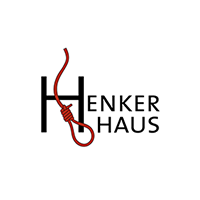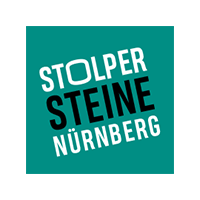Biography of Dr. Aron Cohn, written by his niece Ruth Reinecke
Aron Cohn was born in Nuremberg on 18 October 1904, the eldest son of metal trader Sally Cohn and his wife Gella Cohn (née Schwab). He had two younger siblings: his brother Leopold and sister Emma. They lived at Frauentormauer 42. This was also the location of Aron’s father’s business. Sally Cohn died from the Spanish flu in 1920.
From 1910 to 1914 Aron attended the elementary school (Volkschule) in Nuremberg, from 1914 to 1917 the Jewish secondary school (Realschule) in Fürth and from 1917 to 1919 the secondary school (Realgymnasium) in Nuremberg. Following the death of his father, he stopped attending school and began an apprenticeship as a trader, in order to support the paternal business. At the same time, from 1919 to 1921, he continued to study, attending the educational institute of the Merkur Association in Nuremberg.
In 1928 he commenced studies in Geneva, as a non-degree student, continuing in 1929 in Vienna. In 1932 he obtained his university entrance examination as an external examinee at the Federal Secondary and Federal Grammar School (Bundes-Real-und Obergymnasium) in Klosterneuburg near Vienna. In the winter semester 1932/1933 he studied philosophy at Erlangen University, with education and art history as his subsidiary subjects.
In January 1934 he obtained his doctorate (Dr.phil) in philosophy at the University of Erlangen. A copy of his thesis “Main Problems of Axiology” (“Hauptprobleme der Wertephilosophie”) can be found at the British Library in London.
With the worsening of the anti-Jewish political situation, Aron emigrated to Paris in 1936. His last address in Nuremberg was at today’s Willy-Brandt-Platz 8, where a stumbling stone has been laid in his memory.
In September 1936 he moved to Amsterdam and worked as the director of a chemical company. There, Aron met Gitella Pels and her daughter Eva. They married in 1938. In May 1940 the Netherlands, a neutral country, was attacked and occupied by the German army. Aron lost his job in the chemical company. He made requests to many countries for entry permits but they were all unsuccessful. He and his wife found work with the Jewish community in Amsterdam. On 20 June 1943 they were brought to the transit camp at Westerbork. In January they were deported to Bergen-Belsen. Gitella died in the camp on 2 April 1945.
We now know that Aron was left behind – sick and weak – in the camp when the evacuation train organised by the SS (“The Lost Train”) set off in an easterly direction. As a result of the inhumane conditions in the camp, Aron died of typhus just before it was liberated by the British Army on 15 April 1945.
Careerwise, Aron’s brother Leopold Cohn had already orientated himself towards London before Hitler came to power. He lived there for a long time with his family, before eventually settling in Israel.
Emma Cohn joined the anti-fascist resistance movement during her time as a student in Hamburg. She emigrated in 1937, at first to France and then to England. She returned to Germany in 1946.
My uncle Aron was 40 years old when he died. I was not able to get to know him.
Ruth Reinecke
Daughter of Emma Reinecke (née Cohn)



